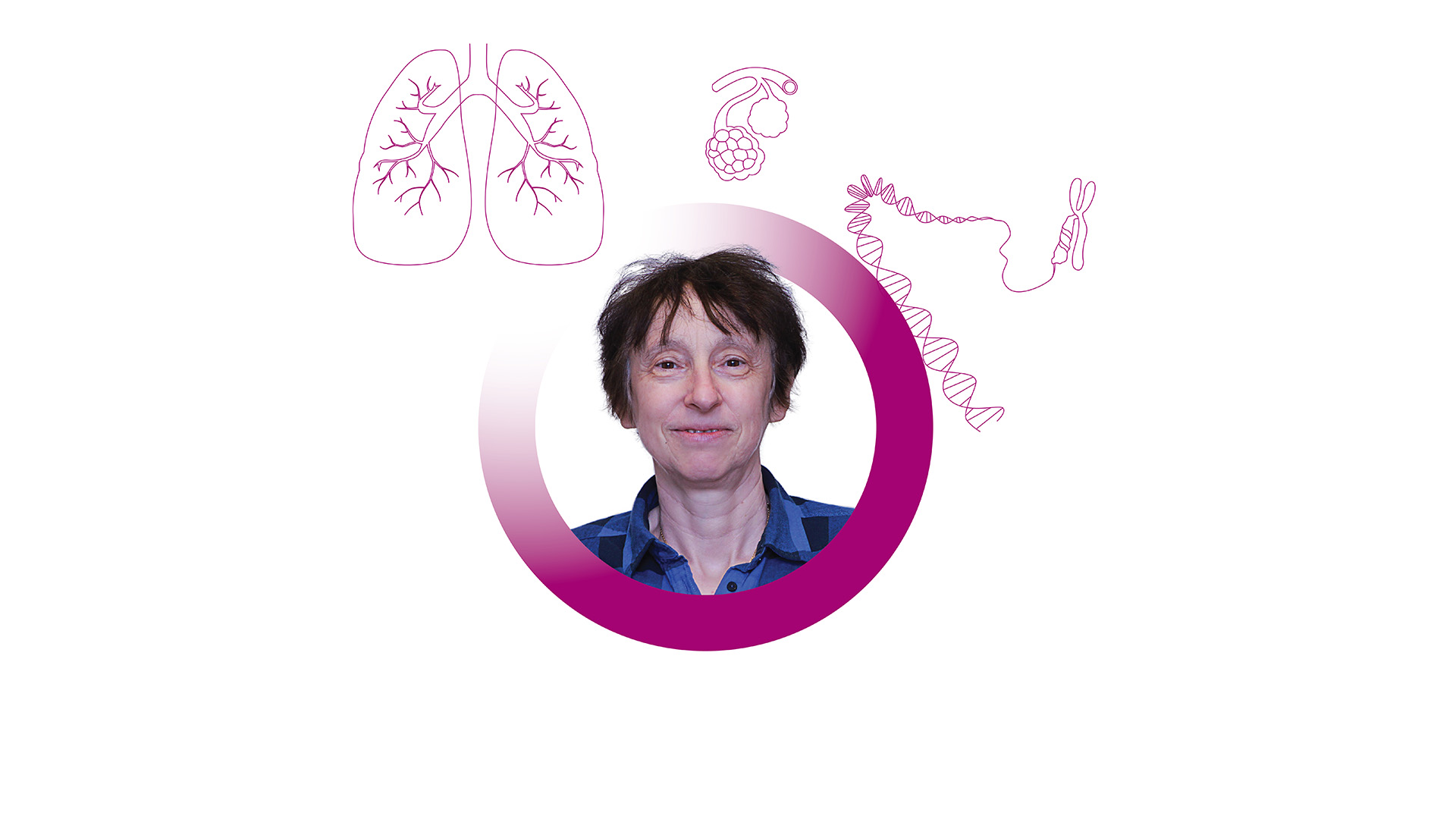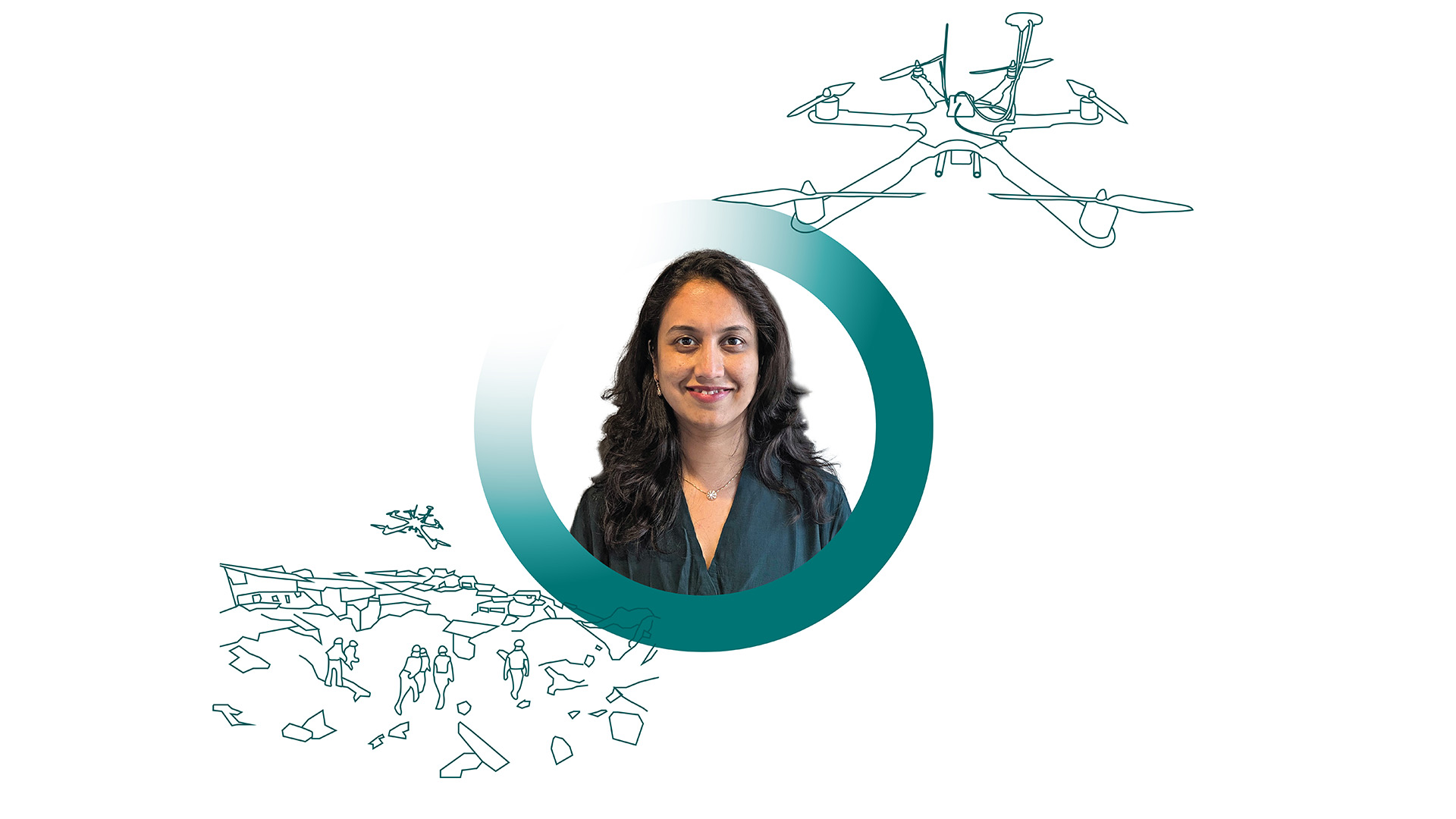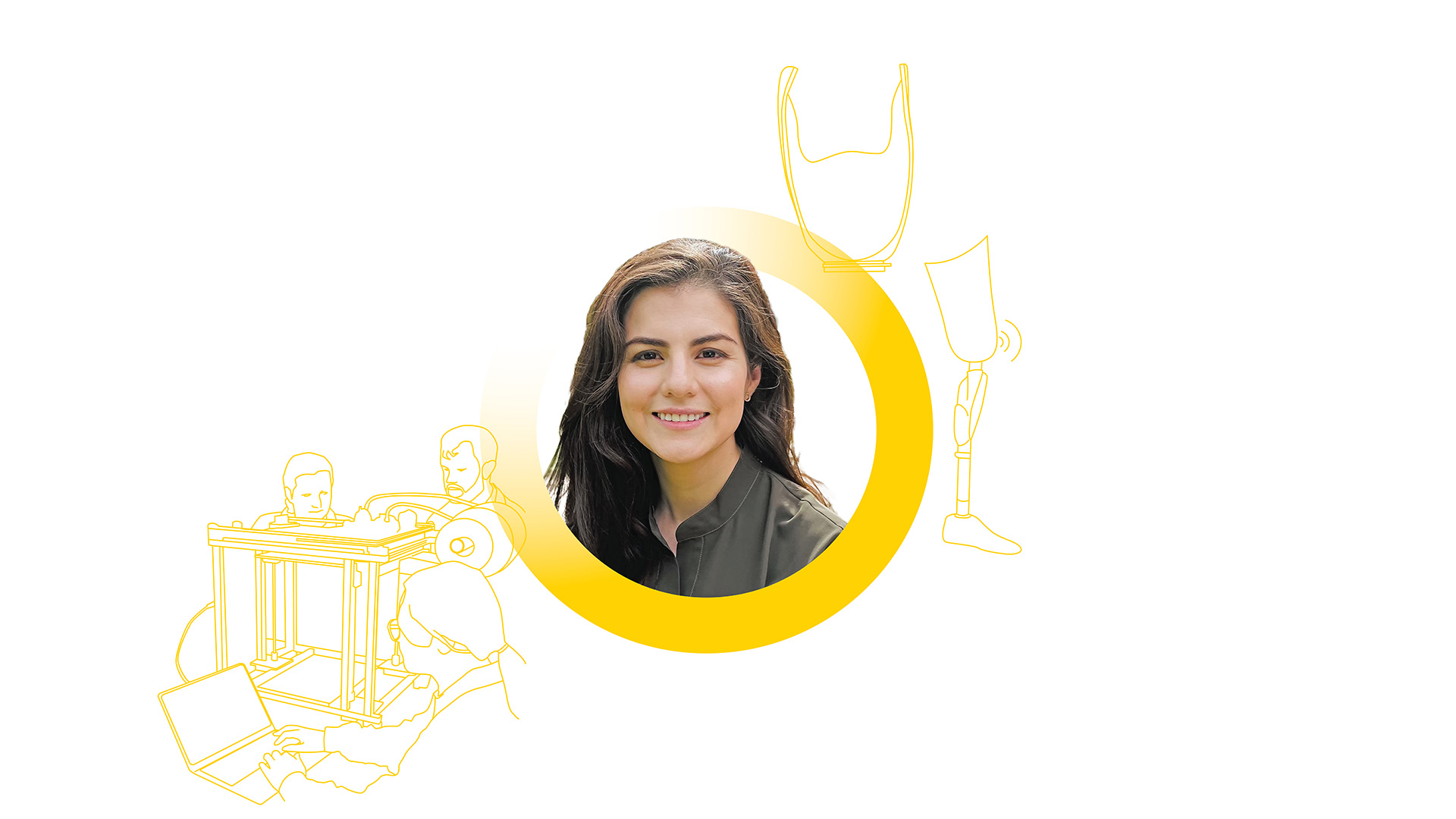Women and Girls in Science: the long road to gender equality
As we celebrate the 10th anniversary of the International Day of Women and Girls in Science, let's take a moment to reflect on the strides we’ve made and the challenges that still remain. La Fondation Dassault Systèmes speaks with three remarkable women in science who, with its support, are shaping the future in their respective fields.
La Fondation Dassault Systèmes is dedicated to empowering girls from diverse backgrounds to pursue scientific careers while supporting women scientists who are leading groundbreaking research.
February 11, 2025 marks an important milestone: the 10th anniversary of the International Day of Women and Girls in Science, established in 2015 by the United Nations General Assembly. This day is a celebration of women's contributions to science, but also an opportunity to assess the progress made and the challenges that remain. While we can see real advances, gender equality in science, technology, engineering, and mathematics (STEM) is still far from being achieved. Women are still underrepresented, especially in leadership roles, and gender stereotypes continue to limit the aspirations of young girls. This day is an opportunity to explore the essential role played by women in scientific innovation and reflect on what can be done to make science truly accessible to everyone, regardless of gender.
Three remarkable women scientists leading research projects with the support of La Fondation Dassault Systèmes are sharing their insights on the underrepresentation of women in STEM, and reflecting on how to tackle this challenge.

Véronique Stoven
A professor at the École des Mines and researcher at the Centre for Computational Biology (CBIO) of Mines Paris-PS in France, Véronique Stoven has made computational biology – a field at the intersection of mathematics, computer science, biology, and medicine – her area of expertise.
From her time at CNRS (the French National Center for Scientific Research), at École Polytechnique and then at École des Mines, Véronique Stoven has observed a significant gender gap in scientific research, especially in leadership roles. However, she also notes a positive shift since her early days in the 1990s. In her field, "where men still predominantly hold leading positions, the proportion of women in the younger generation is increasing, and among them, there are women whose professional paths seem very promising."
"Throughout my career as a researcher, the choice of projects has always been the result of human encounters that inspired us to work together," she explains. The current research project she is leading, with the support of La Fondation Dassault Systèmes, emerged from a collaboration with Isabelle Sermet, a Professor of Medicine at Necker Hospital in Paris. Joined by two colleagues from Institut Curie - an internationally renowned research center and a cutting-edge hospital group - Laurence Calzone and Loredana Martignetti, they head a multidisciplinary all-women team working to better understand the mechanisms behind complex genetic diseases, particularly cystic fibrosis. The project combines systems biology, which has been mainly used in cancer research, with biological experiments to study the behavior of healthy and diseased respiratory cells. The aim is to identify new therapeutic strategies for patients with mutations that are not eligible for the most recent treatments. The team also hopes to adapt this methodology to other genetic diseases.
"Beyond bringing together complementary skills, it’s about forming a united team with a shared goal, where we find as much human as intellectual pleasure in working together," emphasizes Véronique. "In research, the goal is always inspiring, but the daily reality is often more challenging, the results slow to come, and discouragement can set in if one is not supported by team spirit and the pleasure of working together."
She highlights the importance of self-confidence in young girls from an early age, encouraging them to view science as a possibility for their future. "Pursuing a career in research requires a certain confidence in one’s ability to succeed. Girls may think ‘it’s not for me,’ and feel excluded before even attempting to be part of it."
She believes that providing guidance through testimonials from young women scientists, running workshops, age-appropriate mini-projects, and lab visits could help change girls’ perceptions of scientific careers. "We need to fight against stereotypes and offer better support early in their schooling to nurture their interest."
Véronique Stoven also shows that research can go hand-in-hand with family life and personal fulfillment. "I’ve been able to thrive as a researcher while also building a large family. It’s a delicate balance, and I’ve sometimes had to forgo leading teams, but it’s a source of pride to have led both the personal and professional lives I’ve chosen."

Dr. Rahee Walambe
Dr. Rahee Walambe, an associate research faculty at the Symbiosis Centre for Applied Artificial Intelligence (SCAAI) and associate professor at the Symbiosis Institute of Technology of the Symbiosis International University, India, is a leading force in AI research. She focuses on projects that leverage technology to solve real-world challenges, from disaster response to accessible healthcare.
Reflecting on the gender gap in STEM, Dr. Walambe highlights that while it remains significant in core engineering fields, emerging fields like AI and machine learning are slowly attracting more women, albeit with a stark contrast between urban and rural areas. Still, with only 29% of AI-skilled workers being women, gender disparities in AI can have far-reaching consequences, as they lead to biased data and algorithms that fail to represent diverse perspectives. Dr. Walambe explains, “When there is a lack of diversity within AI teams, the technologies they create are more likely to perpetuate existing societal biases.” This can result in AI systems that inadvertently discriminate, such as recruitment algorithms that favor one gender or facial recognition software with reduced accuracy for women and minority groups. “These biases pose serious risks,” she adds. Ensuring that AI development teams are diverse is essential for creating inclusive and ethical technologies that truly serve everyone.
With the support of La Fondation Dassault Systèmes, Dr. Walambe is leading two transformative projects. The first, “Using Drone Imagery for Surveillance and Rescue Applications: Framework for Explainable Computer Vision Tasks”, focuses on using drones equipped with AI to enhance disaster response to improve the efficiency and accuracy of search and rescue operations. “Traditional AI models are often 'black boxes,' giving answers without explaining why. Our AI model not only detects people and animals but also explains its decisions, making it more reliable for rescuers,” she explains. The second project, “AI to Detect Eye Disease in Premature Babies” aims to improve access to affordable healthcare with the development of an AI model for the automated detection of retinopathy of prematurity (ROP), a serious eye disease in low birthweight premature babies that can cause blindness.
Despite progress in gender parity, with only 14% of Indian women STEM graduates actually participating in the workforce, she points out that women in India face societal expectations, cultural pressures, and unequal division of household duties, which, combined with limited workplace flexibility and inadequate professional support, still hinder their career opportunities. “Addressing this requires systemic changes, including policies that support work-life balance and cultural shifts that promote shared responsibilities at home.”
Rahee Walambe also identifies self-censorship and the lack of role models as key barriers to women’s participation in STEM, influenced by their socioeconomic background. “From a young age, girls are discouraged from pursuing STEM due to gender stereotypes. The lack of visible role models limits their aspirations,” she explains. “Creating supportive environments, offering mentorship programs, improving representation, and emphasizing that failure is part of the process can help young girls to envision themselves in STEM careers.”
Dr. Walambe is proud of SIU and SCAAI commitment to gender diversity, where women have a strong presence in both research and academia. “While progress has been made, we must continue efforts to ensure an inclusive environment where all voices are heard,” she says.

Dr. Irina Garces
An assistant professor at Carleton University in Canada, Ecuador-native Dr. Irina Garces leads the Materials as Machines Lab, where her pioneering work in polymer composite materials is pushing the boundaries of engineering, producing smart material systems that can adapt to variable operating environmental conditions. Evolving in a field traditionally dominated by men, Irina is committed to creating more inclusive learning and research environments for future generations of women in science and engineering.
“The gender gap in science and technology is a reality. In mechanical engineering, women remain significantly underrepresented at all levels,” Dr. Garces reflects. There are more women entering this field and taking on leadership roles, but there is still a long way to go. Having experienced implicit biases, doubts regarding her abilities but also the challenges of balancing professional and personal responsibilities, especially after she recently became a mother, she is determined to change the narrative and contribute to breaking down gender stereotypes and self-censorship. “Fostering confidence and ensuring all voices are heard – especially those of underrepresented groups – but also making sure that women in STEM receive the recognition, resources and opportunities needed to thrive will be key to meaningful and lasting change”. Irina Garces believes mentorship is crucial. “As a mentor, I prioritize not only scientific excellence but also the well-being of my students and mentees. Ensuring that they feel supported, valued, and empowered is crucial. I take that responsibility very seriously.” For her, mentoring is about more than just guiding academic growth—it's about creating a space where young women feel heard and encouraged to pursue their ambitions and live up to their full potential.
Her current research project – “Empowering Prosthetic Users: Embedding Pressure Sensing Technology via 3D Printing to Create Smart Prosthetics” – supported by La Fondation Dassault Systèmes, is a perfect example of innovation for social good. Drawing inspiration from her passion as an avid runner, Dr. Garces and her team are developing innovative, low-cost smart prosthetics by integrating 3D-printed pressure sensors directly into the devices. This innovation provides real-time feedback on fit and comfort, a concept she relates to her own experience of tracking performance data in running. “This project is about more than just advancing 3D printing for sensing applications. It’s about improving the comfort and functionality of prosthetic devices, making them more accessible for those who need them,” she explains. This project aligns with her broader ambition of improving accessibility to healthcare and helping individuals take control of their health.
Irina is deeply committed to inspiring the next generation of girls to enter STEM fields. Her advice is simple but powerful: “Your curiosity, creativity, and problem-solving skills are just as valuable as anyone else’s. Engineering isn’t just about equations—it’s about innovation, making an impact, and improving the world around us. Surround yourself with supportive mentors and peers, find inspiring role models, and never be afraid to advocate for yourself. Believe in your abilities, seek out opportunities and remember that your contribution matters.”